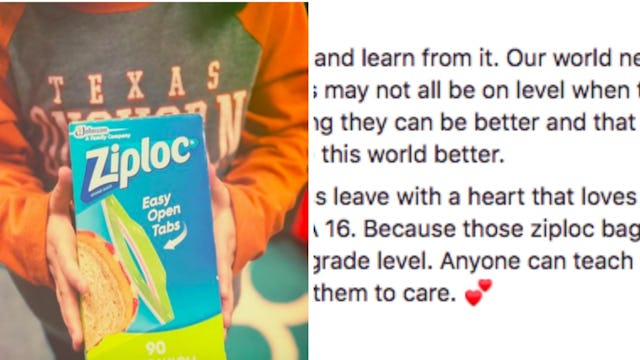Why This Teacher Is Winning The Game Of Life

When I first started my career in education, my supervisor told me one of the best thing I could do is not own a student’s problems. Well, actually, he said that I shouldn’t own the student’s monkeys. The phrase took my by surprise, actually. I didn’t know what to make of it, but eventually I figured it out. As a teacher, you can’t own your students’ reading struggles, you can’t own their troubled home life, you can’t own their learning disabilities. You can teach them how to work around them, you can give them skills to manage their concerns, and you can validate their feelings, but you can’t blame yourself when students struggle.
I suppose this is a way to leave your students’ concerns at the door when you head home. But it is also the hardest part of education. BY FAR.
I’ve been teaching and working in student support at the university level for 10 years, and I cannot tell you how many times I’ve left for the day feeling deflated because my students didn’t perform as well as I knew they could.
I couldn’t help but think about this while reading Katie Pearson’s viral post on what really matters in education. She’s a first grade teacher at Blue Haze Elementary in Fort Worth, Texas, and began her post with something all teachers can relate too: “Want me to be honest? Today was rough. Like I don’t cry and I cried 5 times today.”
It’s pretty easy to get really — and I mean really — invested in your students and their development and overall wellbeing. Don’t kid yourself, no educator is in it for the money.
There are so many metrics out there to help gauge how well a student is learning to read and write and comprehend, and it’s easy to get caught up in all those numbers and feel like they are a reflection of your performance as a teacher. But few of those tests take into account a student’s background or varying abilities, and sometimes it can feel like no matter what you do, your students aren’t performing nearly as well as the students across the hall.
And this, right here, is what Pearson was struggling with until a student brought her a box of Ziploc bags that caused her to cry one more time for the day, but for a very different reason.
Naturally she paused, confused, same as I did when I read this post. Why did a student bring her Ziploc bags?
Then the student said the sweetest thing, “I heard you say you were out of Ziploc bags at home. I saw your sandwich and chips in the same bag. Nobody needs that. That’s gross. Plus, when we need something, you get it.”
The child went on, discussing how Pearson always comes through with glue when they need it, along with cheering them up when they are down, or advising them not to chew on their pencils. Then the kid said this one line that really hit home, “You told us that if we love people, we show them. You said real leaders show people. I just want to show you.”
BOOM! Did you hear it? Because I felt it in my heart. This moment, right here, is what keeps teachers going. Sure, it was just a bag of Ziploc bags, a pretty practical gift. But this kid noticed a need in their teacher, and then tried to fill that need in the same way they’d learned from observing their teacher.
Now that, my friends, is what education is really about. And this goes for home and school.
Whether you’re a professional educator or not, we’ve all experienced moments like this with our kids. In fact, last weekend I dragged my 11-year-old son out into the backyard so he could help me shovel dirt into his mother’s flower boxes. He complained about it because, you know, preteens. And I told him that this is what we do for our family and friends. We help the ones we love. The next day my wife sent me a picture of my son putting dirt in the flower boxes all on his own. And when my wife asked why he was doing it, he said, “Because I love you.”
I had a boom moment then, too. Sure, my son may not be the top of his class, but holy smokes, is he figuring out how to be a good human. And that really is the clincher with Pearson’s essay. “Our world needs kids who observe more and learn from it. Our world needs more compassion. So my kids may not all be on level when they leave me…but they will all leave me knowing they can be better and that they have the potential within to make this world better.”
Sure, we need doctors and engineers and scientists. We always will. That’s all wonderful, but you know what we also desperately need? You know what we can never, ever have too much of? Good, caring people. Kind people. This is what doesn’t show up on those standardized tests. These are the soft skills that make the world a better place. The skills that will last forever.
And let me just say, thank you Katie Pearson for teaching it to your first grade class. You are making the world a better place, and we see you.
This article was originally published on